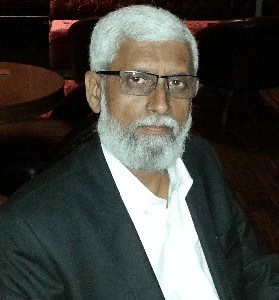
Shafeeq R. Mahajir
An advocate is bound to accept any brief in the courts or tribunals or before any other authority in or before which he proposes to practice. He should levy fee which is at par with the fees collected by fellow advocates of his standing at the Bar and the nature of the case. Special circumstances may justify his refusal to accept a particular brief.
Do not withdraw from service
An advocate should not ordinarily withdraw from serving a client once he has agreed to serve them. He can withdraw only if he has a sufficient cause and by giving reasonable and sufficient notice to the client. Upon withdrawal, he shall refund such part of the fee that has not accrued to the client.
Cannot appear in some matters
An advocate should not accept a brief or appear in a case in which he himself is a witness. If he has a reason to believe that in due course of events he will be a witness, then he should not continue to appear for the client. He should retire from the case without jeopardising his client’s interests.
Full and frank disclosure to client
An advocate should, at the commencement of his engagement and during the continuance thereof, make all such full and frank disclosure to his client relating to his connection with the parties and any interest in or about the controversy as are likely to affect his client’s judgement in either engaging him or continuing the engagement.
Uphold interest of the client
It shall be the duty of an advocate to fearlessly uphold the interests of his client by all fair and honourable means. An advocate shall do so without regard to any unpleasant consequences to himself or any other. He shall defend a person accused of a crime regardless of his personal opinion as to the guilt of the accused. An advocate should always remember that his loyalty is to the law, which requires that no man should be punished without adequate evidence.
Do not suppress material or evidence
An advocate appearing for the prosecution of a criminal trial should conduct the proceedings in a manner that it does not lead to conviction of the innocent. An advocate shall by no means suppress any material or evidence, which shall prove the innocence of the accused.
Do not disclose private talks
An advocate should not by any means, directly or indirectly, disclose the communications made by his client to him. He also shall not disclose the advice given by him in the proceedings. However, he is liable to disclose if it violates Section 126 of the Indian Evidence Act, 1872.
Advocate fee
An advocate should not charge for his services depending on the success of the matter undertaken. He also shall not charge for his services as a percentage of the amount or property received after the success of the matter.
Shall not receive interest in actionable claim
An advocate should not trade or agree to receive any share or interest in any actionable claim. Nothing in this rule shall apply to stock, shares and debentures of government securities, or to any instruments, which are, for the time being, by law or custom, negotiable or to any mercantile document of title to goods.
Shall not buy property under litigation
An advocate should not by any means bid for, or purchase, either in his own name or in any other name, for his own benefit or for the benefit of any other person, any property sold in any legal proceeding in which he was in any way professionally engaged. However, it does not prevent an advocate from bidding for or purchasing for his client any property on behalf of the client provided the advocate is expressly authorised in writing in this behalf.
Also, an advocate should not by any means bid in court auction or acquire by way of sale, gift, exchange or any other mode of transfer (either in his own name or in any other name for his own benefit or for the benefit of any other person), any property which is the subject matter of any suit, appeal or other proceedings in which he is in any way professionally engaged.
Do not adjust fee against personal liability
An advocate should not adjust fee payable to him by his client against his own personal liability to the client, which does not arise in the course of his employment as an advocate.
Shafeeq R. Mahajir is a well-known advocate based in Hyderabad

